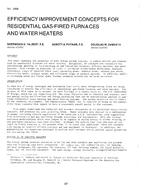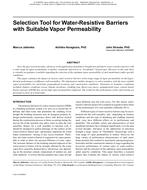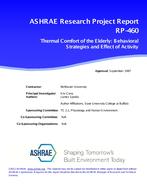Section 5-6 of National Fire Protection Association Standard NFPA-13 describes approved methods whereby non-fire protection (i.e., HVAC) circulating closed loops can be interconnected with conventionally designed building automatic fire sprinkler (AFS) systems by means of NFPA-permitted closed-loop piping arrangements, which can provide, under most circumstances, substantial cost savings to the building owner. Discusses the NFPA-13 requirements, HVAC industry practices, utilisation of available time-of-day (electric) utility rate structures, and the understandable concerns of life safety officials for potential misuse and/or misapplication of such non-fire protection interconnections. An example of cost-effective integration of HVAC/TES/AFS systems is presented for a representative 10-storey office building located in the metropolitan Los Angeles area. Floor-to-floor packaged (self-contained) variable-air-volume/temperature (VVT) water-cooled air conditioners and a wet economiser cycle (WEC) operating in combination with a nominal 3,000 ton-hour partial ice-TES system serve the nominal 230,000-ft2 office building. A conventionally designed comparable floor-to-floor packaged VAV air conditioning system also employing water-cooled condensers and a WEC will also be presented and compared in terms of relative amortisation and initial and annual operating costs.
KEYWORDS: designing, integrated design, sprinklers, fire protection, pipes, energy storage, multistorey buildings. commercial, offices, buildings, costs, variable volume variable temperature air conditioning, unit air conditioners, variable volume air conditioning, comparing, water cooled condensers, operations, packaged air conditioning units, economics, electricity consumption, USA, ice storage
Citation: ASHRAE Trans. 1992, vol.98, Part 1, Paper number AN-92-14-4, 1140-1148, 8 figs., 2 tabs., 10 refs.
Product Details
- Published:
- 1992
- File Size:
- 1 file , 1.2 MB
- Product Code(s):
- D-18084


